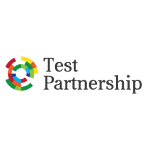One tool that is often overlooked in the assessment process is the inductive reasoning test. But what exactly are these tests, and how can they benefit your hiring decisions?
What is Inductive Reasoning?
Inductive reasoning is the ability to identify patterns, analyse information, and draw conclusions based on those observations. Imagine looking at a sequence of shapes that change colour or rotate. Inductive reasoning allows you to predict the next shape in the sequence based on the pattern you've observed.
Why Use Inductive Reasoning Tests?
There are several reasons why inductive reasoning tests can be a valuable asset in your hiring toolbox:
Logical Thinking: These tests assess a candidate's ability to think critically and solve problems logically. This skill is essential for various roles, from data analysts to project managers.
Pattern Recognition: The ability to identify patterns is a key component of success in many jobs. Those who excel in inductive reasoning tests are adept at finding connections and anticipating trends, making them valuable assets in fields like marketing or sales. While certain inductive reasoning tips and strategies can help anyone learn how to develop their pattern recognition skills, you will want to find those who truly excel.
Objectivity: Unlike traditional interviews that can be subjective, inductive reasoning tests provide a standardised way to assess a candidate's cognitive abilities. This helps eliminate bias and ensures a fair evaluation process.
Early Screening: These tests can be administered online and are relatively quick to complete. This allows you to efficiently screen a large pool of applicants and identify those with the strongest analytical skills for further evaluation.
When Are Inductive Reasoning Tests Most Relevant?
While inductive reasoning tests offer numerous benefits, they may not be suitable for every role. Here's when they can be most impactful:
Analytical Roles: Jobs that require data analysis, problem-solving, or research heavily benefit from strong inductive reasoning skills. These tests can be particularly useful when hiring for positions like accountants, scientists, or engineers.
Client-Facing Roles: Salespeople and other client-facing positions often need to identify patterns in customer behaviour and adapt their approach accordingly. Inductive reasoning tests can help assess a candidate's ability to do so.
Building a Well-Rounded Assessment
Inductive reasoning tests offer valuable insights, but they shouldn't be the only piece of the hiring puzzle. To create a truly comprehensive evaluation, consider incorporating additional elements.
Technical skills assessment is crucial. Don't leave technical expertise to chance. Utilise practical tests or project evaluations to ensure candidates possess the specific skills required for the job.
Behavioural Interviewing with targeted questions is your ally in uncovering a candidate's soft skills, work ethic, and cultural fit. Through this approach, you gain a deeper understanding of how a candidate would approach challenges and interact within your organisation.
Work Sample Tests bridge the gap between theory and practice. By providing candidates with realistic job-related tasks and evaluating their practical abilities, you can assess their readiness to hit the ground running.
By strategically combining inductive reasoning tests with these other methods, you can create a robust hiring process that goes beyond identifying analytical skills. This comprehensive approach empowers you to pinpoint the most qualified and successful candidates who not only possess the right thought processes but also the technical expertise and cultural fit to thrive within your team.







